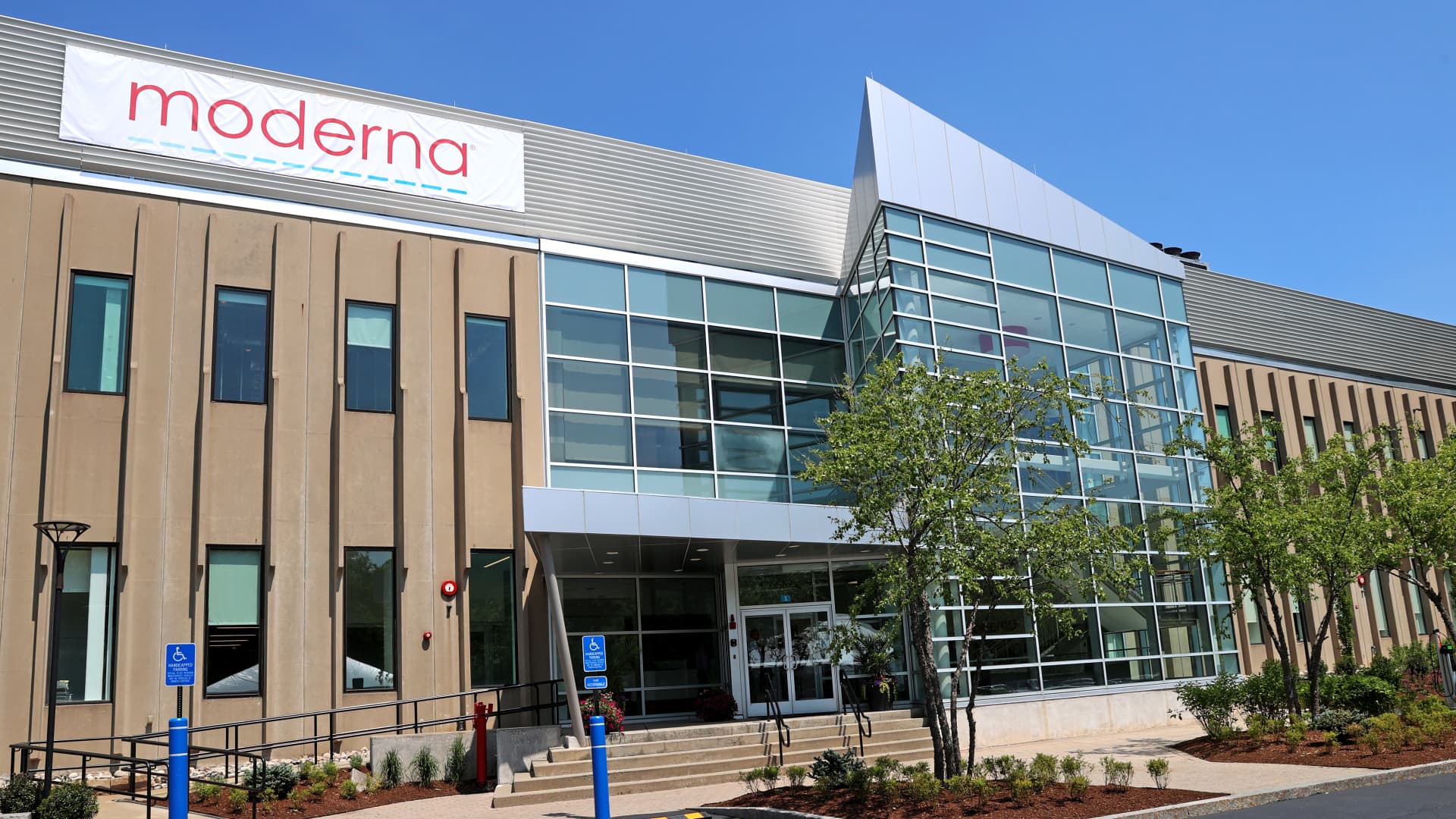An exterior view of Moderna’s clinical manufacturing facility.
David L. Ryan | Boston Globe | Getty Images
Moderna and Merck‘s experimental cancer vaccine, when used in combination with Merck’s blockbuster therapy Keytruda, reduced the risk of death or relapse in patients with the most deadly form of skin cancer by half after roughly three years, according to midstage trial data released Thursday.
The vaccine could win regulatory approvals and launch in some countries as early as 2025, Moderna CEO Stephane Bancel said on CNBC’s “Squawk Box” on Thursday.
Shares of Moderna jumped more than 10% in morning trading Thursday following the data release, while Merck’s stock dipped slightly.
The combination specifically slashed the risk of death or recurrence of the cancer, known as melanoma, by 49% in patients in later stages of the disease compared to those who received Keytruda alone after three years. The cancer vaccine in combination with Keytruda also reduced the risk of melanoma spreading to other parts of the body by 62%.
Those results build on midstage trial data the companies released earlier this year, which showed the efficacy of the combination in the same patients over a shorter period. After around two years, the vaccine and Keytruda cut the risk of death or relapse by 44% in melanoma patients, and reduced the risk of the cancer spreading in the body by 65%, according to the earlier trial data.
The most common side effects of the vaccine were fatigue, injection site pain and chills, according to Thursday’s data.
The new results suggest that the cancer shot used with the immunotherapy continues to provide meaningful health benefits to melanoma patients after they stay on the treatment for a longer period of time.
Bancel said he is eager to see four and five-year data on the vaccine because “the melanoma curve is flattening, people are not dying anymore” after going through the treatment.
The two drugmakers are studying the combination as a treatment for…
Read the full article here

Leave a Reply